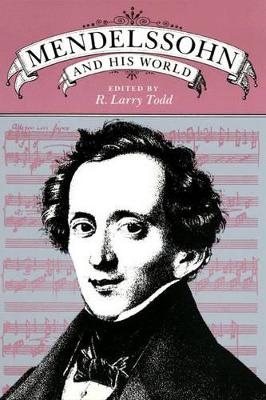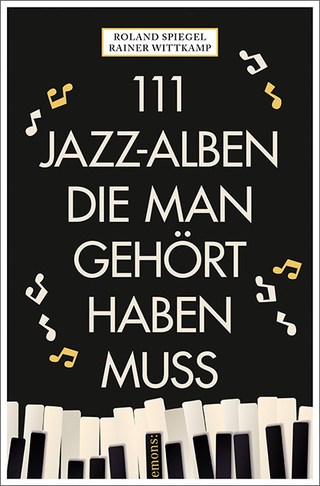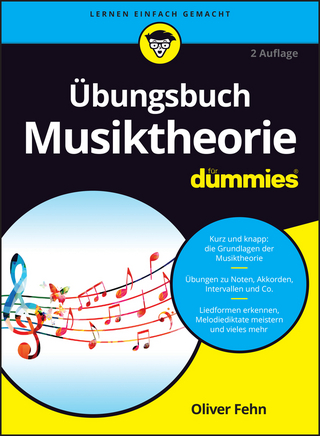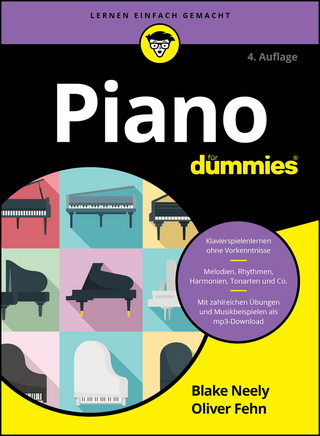
Mendelssohn and His World
Princeton University Press (Verlag)
978-0-691-02715-9 (ISBN)
During the 1830s and 1840s the remarkably versatile composer-pianist-organist-conductor Felix Mendelssohn-Bartholdy stood at the forefront of German and English musical life. Bringing together previously unpublished essays by historians and musicologists, reflections on Mendelssohn written by his contemporaries, the composer's own letters, and early critical reviews of his music, this volume explores various facets of Mendelssohn's music, his social and intellectual circles, and his career. The essays in Part I cover the nature of a Jewish identity in Mendelssohn's music (Leon Botstein); his relationship to the Berlin Singakademie (William A. Little); the role of his sister Fanny Hensel, herself a child prodigy and accomplished composer (Nancy Reich); Mendelssohn's compositional craft in the Italian Symphony and selected concert overtures (Claudio Spies); his oratorio Elijah (Martin Staehelin); his incidental music to Sophocles' Antigone (Michael P. Steinberg); his anthem "Why, O Lord, delay forever?" (David Brodbeck); and an unfinished piano sonata (R. Larry Todd). Part II presents little-known memoirs by such contemporaries as J. C. Lobe, A. B. Marx, Julius Schubring, C. E.
Horsley, Max Mller, and Betty Pistor. Mendelssohn's letters are represented in Part III by his correspondence with Wilhelm von Boguslawski and Aloys Fuchs, here translated for the first time. Part IV contains late nineteenth-century critical reviews by Heinrich Heine, Franz Brendel, Friedrich Niecks, Otto Jahn, and Hans von Blow.
*FrontMatter, pg. i*Contents, pg. v*Preface, pg. ix*Acknowledgments, pg. xiii*The Aesthetics of Assimilation and Affirmation: Reconstructing the Career of Felix Mendelssohn, pg. 5*Some Notes on an Anthem by Mendelssohn, pg. 43*Mendelssohn and the Berlin Singakademie: The Composer at the Crossroads, pg. 65*The Power of Class: Fanny Hensel, pg. 86*Samplings, pg. 100*Elijah, Johann Sebastian Bach, and the New Covenant: On the Aria "Es ist genug" in Felix Mendelssohn- Bartholdy"s Oratorio Elijah, pg. 121*The Incidental Politics to Mendelssohn's Antigone, pg. 137*The Unfinished Mendelssohn, pg. 158*Conversations with Felix Mendelssohn, pg. 187*From the Memoirs of Adolf Bernhard Marx, pg. 206*Reminiscences of Felix Mendelssohn-Bartholdy, pg. 221*Reminiscences of Mendelssohn by His English Pupil, pg. 237*From the Memoirs of F. Max Muller, pg. 252*From the Memoirs of Ernst Rudorff, pg. 259*Letters from Felix Mendelssohn-Bartholdy to Aloys Fuchs, pg. 275*Mendelssohn as Teacher, pg. 310*Robert Schumann with Reference to Mendelssohn-Bartholdy and the Development of Modern Music in General, pg. 341*Heinrich Heine on Mendelssohn, pg. 352*On F. Mendelssohn-Bartholdy's Oratorio Elijah, pg. 364*On Mendelssohn and Some of His Contemporary Critics, pg. 382*Felix Mendelssohn, pg. 390*Index of Names and Compositions, pg. 395*List of Contributors, pg. 402
| Erscheint lt. Verlag | 13.8.1991 |
|---|---|
| Reihe/Serie | The Bard Music Festival |
| Verlagsort | New Jersey |
| Sprache | englisch |
| Maße | 152 x 229 mm |
| Gewicht | 595 g |
| Themenwelt | Kunst / Musik / Theater ► Musik |
| ISBN-10 | 0-691-02715-3 / 0691027153 |
| ISBN-13 | 978-0-691-02715-9 / 9780691027159 |
| Zustand | Neuware |
| Haben Sie eine Frage zum Produkt? |
aus dem Bereich


